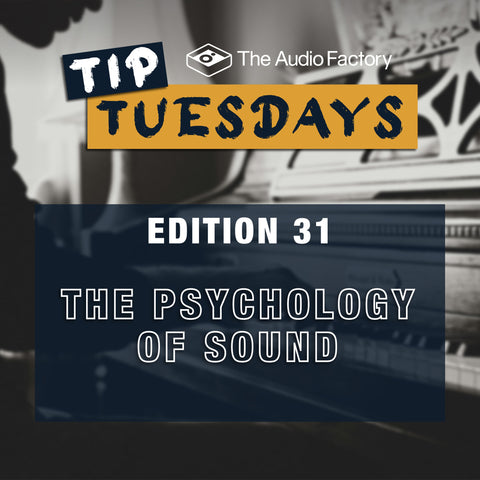Welcome to this week's Tip Tuesday! Today, we delve into the fascinating world of how music influences our emotions and how you can harness this power to tailor your listening experience. Whether you're looking to uplift your mood, calm your mind, or enhance your productivity, understanding the psychology of sound can help you make the most of your audio journey.
The Science Behind Music and Emotions

Using Music to Boost Your Mood
If you want to elevate your mood, consider listening to upbeat and happy music. Research has shown that intentionally focusing on improving your mood while listening to positive music can significantly enhance your emotional state. Creating a playlist of your favorite feel-good songs can be a quick and effective way to boost your happiness.
Music as a Stress Reliever
Music also plays a crucial role in stress management. Listening to calming music can reduce cortisol levels, lower blood pressure, and slow down heart rate, promoting relaxation and reducing anxiety. Genres like classical, ambient, or meditation music are particularly effective for stress relief. Next time you feel overwhelmed, try playing some soothing tunes to help calm your mind.
Enhancing Focus and Creativity

The Therapeutic Power of Music
Music therapy is a well-established practice that uses music to address various emotional and psychological needs. It has been found to be particularly effective in reducing symptoms of depression and anxiety. Whether through structured therapy sessions or simply integrating more music into your daily life, you can harness the therapeutic benefits of music to improve your mental well-being.
Tailoring Your Listening Experience
- Energizing Music: For a boost of energy, choose songs with a fast tempo, strong beat, and positive lyrics. Genres like pop, rock, and electronic dance music (EDM) are great options.
- Relaxing Tunes: To unwind and reduce stress, select slower, soothing tracks. Classical music, ambient soundscapes, and acoustic ballads are perfect for relaxation.
- Focus and Concentration: Instrumental music, such as jazz, classical, or lo-fi hip-hop, can help improve focus and concentration without the distraction of lyrics.





Comments (1)
Is there any type of music that is more effective in enhancing positive mood?
Regard Telkom University